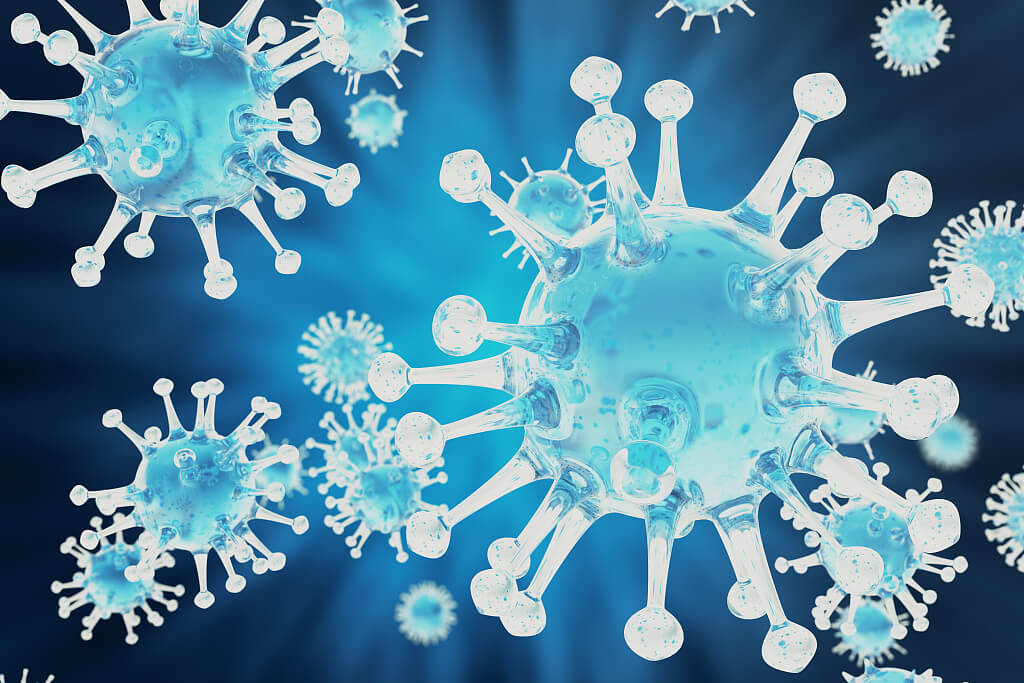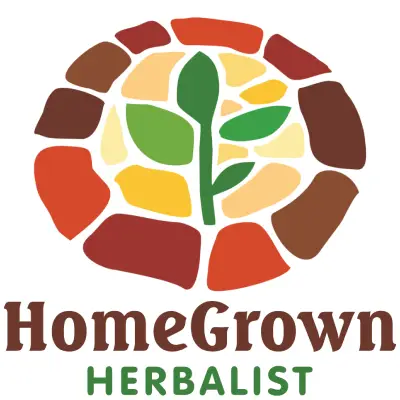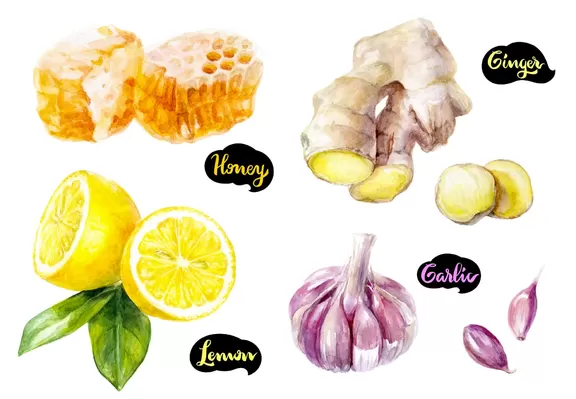
Garlic does not appear to be too capable of a natural antiviral agent. This is with one caveat: garlic appears to possibly be able to help treat the flu. There are many different viruses in the world, and there is not enough research on how garlic affects these viruses.
But, the essential answer to the question “Is garlic an antiviral?” in regards to the most common viruses, appears to be generally "no."
It should be noted it can be extrapolated from research that garlic does kill many types of viruses. But, the killing effect requires concentrations of garlic that are also toxic to human cells.
The research seems to indicate that garlic does help strengthen the immune system and confer a protective effect against the common cold. Also, taking garlic on a daily basis does appear to reduce the severity of cold and flu symptoms. But as far as being lethal to cold viruses, it is probably going to take a concentration of garlic that is also toxic to human cells to kill these viruses.
Again, research is lacking for many viruses. So extrapolation from current research is the best you can do.
Yet, some research does suggest that garlic would be a great addition to a treatment plan for people with the flu (influenza). Yet, again the research is limited as there are many different types of influenza. So drawing conclusions from available data is a good place to start.
The late Dr. James Duke, in his book The Green Pharmacy,(source 1) recommends taking garlic for the flu and taking it to help prevent getting colds. Dr. Duke also suggests taking onion (a close relative of garlic); as it has a similar, but lower degree, of the antiviral action garlic has.
Let’s take a look at the research to get a better idea of the anti-viral ability of garlic.
Dr. John Herzog (MD)
Dr. John Herzog, a "survival surgeon" from Maine explains what home remedies work best in a crisis situation.
This may be important in the event you require first-aid or are in an emergency situation without easy access to a hospital. Dr. John Herzog has assembled a large collection of home remedies for such scenarios.

Does Taking Garlic Help Fight the Common Cold?

The first study we will look at, investigated this exact question. The study was entitled “Garlic for the Common Cold” and was published in the Cochrane Database of Systematic Reviews [11 (2014)].(source 2) The review decided to only include one study out of several they investigated. This one study was conducted on 146 participants that were randomly assigned either garlic supplement (which contained allicin) or placebo for 12 weeks.
The included study reported 24 occurences of the common cold in the garlic group. In the placebo group there were 65 occurrences.

Comprehensive Herbalist School
Dr. Patrick Jones, founder of the HomeGrown Herbalist School of Botanical Medicine has been a practicing veterinarian for over 25 years. He is also a clinical herbalist and traditional naturopath.
Kevin Harrington, Original Shark from ABC’s Shark Tank, stands behind Dr. Patrick Jones and HomeGrown Herbalist.
Learn More
Comprehensive Herbalist School
Dr. Patrick Jones, founder of the HomeGrown Herbalist School of Botanical Medicine has been a practicing veterinarian for over 25 years. He is also a clinical herbalist and traditional naturopath.
Kevin Harrington, Original Shark from ABC’s Shark Tank, stands behind Dr. Patrick Jones and HomeGrown Herbalist.Learn More
The included study defined a cold as feeling bad and beginning to show symptoms; and, also specified having a full-blown cold (tiredness, headache, sneezing, runny nose). Interestingly, the placebo group had 16 people report having a full-blown cold; whereas the garlic group only had two people.
The study also showed something else of interest: there was no significant difference in recovery time from a cold for those taking garlic versus placebo. The two groups’ recovery time from a cold was 4.63 and 5.63 days.
Thus, this one study seems to indicate that garlic makes a good prophylaxis (preventative measure) for the cold. Yet, garlic does not seem to help reduce the recovery time if you already have a cold.
Claire Goodall’s Amazing Guide
Clair Goodall is a bee-obsessed, natural medicine convert from Minnesota (USA). And, she does keep bees!
Clair has created 350+ page book documenting how to replace the toxic products and medications in your home with healthier, all-natural alternatives.

How Does Garlic Affect Influenza (Flu)?
A study published in the Iranian Journal of Virology [2009.2 (2008): 1](source 3) looked at how garlic would impact the influenza virus. The study states that influenza virus is the most important cause of annual sickness and deaths in the world.
The study used kidney cells from dogs to evaluate how garlic would affect influenza. The study found that a low concentration of garlic extract was able to stop the virus growth to a large extent. The garlic extract conferred a "high percent protection" to the tested cells. At all three time intervals tests were conducted (1, 8, and 24 hours) the infectious ability of the virus was reduced. The study’s abstract stated the following conclusion:
Although the precise mechanism has not been defined yet, it was found that garlic extract with a good selectivity index (SI) has inhibitory effect on the virus penetration and proliferation in cell culture.
Iranian Journal of Virology [2009.2 (2008): 1]
So what is a Selectivity Index (SI)?
The SI is a ratio of a substance’s antiviral activity (AVA) to its cytotoxicity (TOX; cytotoxicity means that it damages or kills cells; i.e., it is toxic to cells). The higher a SI is, the more theoretically effective a drug would be at treating a viral infection.(source 4)
So, an ideal drug or herb for treating viral infections would be very effective at combating a virus at low concentrations, and only be toxic at very high concentrations. Therefore a high SI = high AVA / low TOX. This would enable the substance to eliminate a virus while not proving damaging to normal cells.(source 4)
The SI is a widely accepted figure that is used to express a compounds in vitro (in a test environment, not in a living organism) ability to stop virus replication.(source 4)
Further Research on the Flu and Garlic
A study published in Planta Medica [51.05 (1985): 460-461](source 5) also looked at how garlic would impact influenza. The study’s experiment involved growing Influenza B / Lee / 40 virus in chicken eggs and adding garlic extract (extract was purchased and was 30 mg in 2 ml sterile ampules).
The study found the cytotoxicity for the garlic extract; concentrations of 1.5 mg / ml were found to be cytotoxic. At this concentration, cell rounding, shrinking, and dying occured. As a result, concentrations at or below this level were used in the testing.
The study’s testing revealed that incubation of garlic extract at concentrations of 0.15 mg / ml or greater with influenza B / Lee / 40 significantly reduced the concentration of virus particles capable of invading host cells.
The study made the following conclusions about their findings (other viruses were tested besides influenza):
The garlic extract possessed in vitro antiviral activity against influenza B virus, herpes simplex virus type 1, but not against coxsackie BI virus. The antiviral activity was found to occur at concentrations below those that caused toxicity to tissue culture cells. Hence, these antiviral concentrations might be achieved in man or animals without significant host toxicity.
Planta Medica [51.05 (1985): 460-461]
More Research on Garlic’s Antiviral Ability
A study published in Planta Medica [58.05 (1992): 417-423](source 6) looked at how garlic would affect various viruses. The viruses tested in the study included:
- Herpes simplex virus type I (HSV-1)
- Herpes simplex virus type 2 (HSV-2)
- parainfluenza virus type 3 (Para-3) (Human parainfluenza viruses commonly cause respiratory illnesses in infants and young children. But anyone can get this disease.)
- Human rhinovirus type 2 (IIRV-2) (Rhinovirus is the most common infectious virus in humans and is the primary cause of the common cold.)
The study found that garlic extract killed all the viruses it was tested on. At the highest concentration tested (1,000 mg / ml) the infectious ability of all the viruses was substantially lowered.
The cytotoxicity (the toxicity to cells) of garlic extract was found. The garlic extract killed 100% of human cells at a concentration of 11 mg / ml. At a ten fold dilution of 1.1 mg / ml the garlic extract caused little cytotoxic effects to human cells.

HomeGrown Herbalist Herb Shoppe
Owner of HomeGrown Herbalist Dr. Patrick Jones is a practicing veterinarian, Clinical Herbalist, and traditional naturopath. He owns and operates Fairview Animal Hospital in Buhl, ID.
Their herb shoppe provides herbs, essential oils, and tools. If you have some time, check it out!
Learn More
HomeGrown Herbalist Herb Shoppe
Owner of HomeGrown Herbalist Dr. Patrick Jones is a practicing veterinarian, Clinical Herbalist, and traditional naturopath. He owns and operates Fairview Animal Hospital in Buhl, ID.
Their herb shoppe provides herbs, essential oils, and tools. If you have some time, check it out!Learn More
Allicin’s cytotoxicity was also found. Concentrations of 10 µg / ml (micrograms per milliliter) and higher were toxic to human cells.
Thus the study concluded that concentrations of garlic extract and allicin that were able to kill viruses also were toxic to human cells. And, the research stated that garlic products with the highest levels of allicin and other thiosulfinates (sulfur containing chemicals found in garlic) had the best ability to kill the tested viruses.
Garlic and the Immune System

Research published in Clinical Nutrition [31.3 (2012): 337-344](source 7) examined aged garlic extract (AGE) and how it affected the immune system and impacted cold and flu symptoms. To do this the study recruited 120 healthy people and allocated them into two different groups. Half of the people received a placebo, while the other half took an AGE supplement (2.56 grams of AGE each day). These individuals’ immune cells were examined and their cold and flu symptoms were documented.
The study found that the natural killer cells (a type of immune cell) of subjects taking AGE proliferated twice as much as subjects in the placebo group; this difference was statistically significant.
Another type of immune system cell was measured in both groups: Gamma delta T cells. The study found that there was an 8-fold increase in the proliferation of these cells in the group taking AGE compared to the placebo group.
Concerning the occurrence of colds and flus, the study found no difference in the AGE group compared to the placebo group. Yet, the severity of illness was significantly lower in the people taking AGE. This reduction of severity was demonstrated by fewer days with symptoms and less loss of productivity during sickness.

Comprehensive Herbalist School
Dr. Patrick Jones, founder of the HomeGrown Herbalist School of Botanical Medicine has been a practicing veterinarian for over 25 years. He is also a clinical herbalist and traditional naturopath.
Kevin Harrington, Original Shark from ABC’s Shark Tank, stands behind Dr. Patrick Jones and HomeGrown Herbalist.
Learn More
Comprehensive Herbalist School
Dr. Patrick Jones, founder of the HomeGrown Herbalist School of Botanical Medicine has been a practicing veterinarian for over 25 years. He is also a clinical herbalist and traditional naturopath.
Kevin Harrington, Original Shark from ABC’s Shark Tank, stands behind Dr. Patrick Jones and HomeGrown Herbalist.Learn More
The study concluded by stating that people taking AGE had a reduction in the severity of cold and flu symptoms; and, this was associated with changes to the immune cell function.
Garlic’s Side Effects & Contraindications
There are some cautions you should be aware of when it comes to taking garlic. Fortunately, Herbsey has an article that provides a detailed summary of these side effects. You can read it (maybe just the short summary if you don’t have time!) here: Side Effects of Taking Garlic.
Generally you do not have to worry too much when taking a few cloves of garlic a day. The most common, and likely side effect, is having bad breath or bad body odor. But, if you use it on your skin, you should dilute the garlic, or use it with caution. This is because garlic can cause chemical burns.
Additionally, garlic may interact with blood thinners and drugs used to treat HIV. Also, garlic may prolong bleeding time and should be avoided before surgery. Again, the article has a more comprehensive explanation.
About the Author
Nick Gross is a natural medicine enthusiast who has been researching and writing about natural medicine since 2008. Nick is primarily a web developer, but also researches and authors written and video content about natural health. Nick has a bachelor’s degree in Management Information Systems from the University of Northern Iowa.
More on Nick GrossImportant Disclosures & Disclaimers
It is important to use the information you find on Herbsey.com in the right way. Also for legal reasons, these disclaimers and disclosures are necessary. For further information about each, feel free to click the link provided to the page on this website that provides more information.
Medical Disclaimer
The information on this website is not a prescription for anyone. This information is for informational or educational purposes only, and is not a substitute for professional medical advice or consultations with healthcare professionals.
Advertisement Disclosure
Some of the links provided on this article and website are affiliate links. If you purchase a product after clicking on these links, Herbsey.com will earn a commission. Herbsey.com promotes various products through advertisement and text links. For more information: Our Advertisements.







